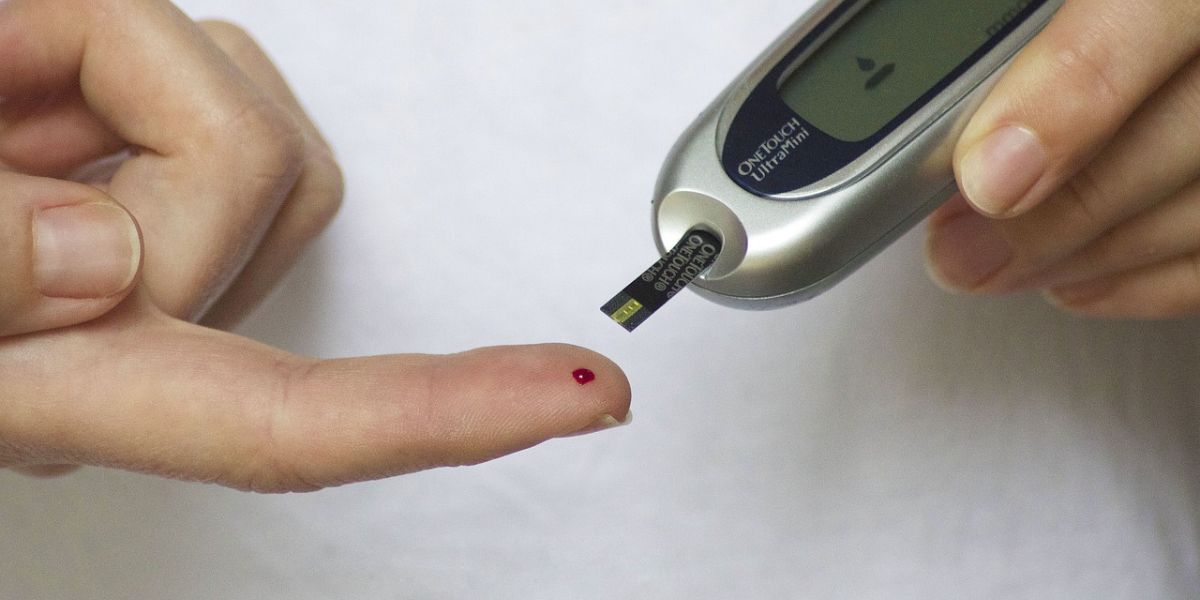Beware! Foods That Can Increase Your Blood Sugar, Don't Take It Lightly!
Discover various types of food that can trigger spikes in your blood sugar!

Kapanlagi.com - Many people immediately feel panic when they find out their blood sugar levels are high. Often, this condition is directly linked to diabetes. However, did you know that although there is a connection, the two are actually very different?
Blood sugar levels are just a number that indicates how much glucose is circulating in our blood. On the other hand, diabetes is a chronic disease that occurs when high blood sugar levels persist continuously.
Therefore, understanding the difference between the two is very important so we do not take the wrong steps in handling it. By recognizing the difference between high blood sugar and diabetes, we can prevent misdiagnosis and avoid unnecessary fears.
So, what are the fundamental differences between the two? Let’s take a look at the complete review below!
Blood sugar, which is the level of glucose in the blood, is greatly influenced by our food intake, especially carbohydrates and sugars.
Glucose serves as a vital source of energy for the body, while insulin acts as a regulator to allow glucose to enter the body’s cells properly.
This blood sugar level can fluctuate, influenced by various factors such as the types of food we consume, physical activity, stress levels, and certain health conditions.
In addition to being an indicator for detecting diabetes mellitus, high blood sugar levels can also occur after we have a large meal, exercise less, or as a result of infections.
However, this spike does not always mean that someone has diabetes; to get certainty, regular check-ups and more in-depth medical diagnosis are very much needed.
Diabetes mellitus is a disease that arises from problems with insulin production or effectiveness, an important hormone that functions to transport glucose into the body's cells.
When the body lacks insulin or does not respond to it effectively, glucose accumulates in the blood, causing blood sugar levels to remain high for an extended period. However, it is important to remember that diabetes is not just about a spike in blood sugar levels at a momentary point, but rather a continuous pattern.
Many people are unaware that they have developed diabetes because this disease often does not show clear early symptoms.
In simple terms, diabetes describes a disorder of sugar metabolism caused by problems with the insulin hormone, which is supposed to help regulate our blood sugar.
To clarify the difference, it is important to note that not all individuals with high blood sugar levels automatically qualify as having diabetes.
However, one thing is certain: every person diagnosed with diabetes will consistently have high blood sugar levels.
High blood sugar often seems harmless, but if left unchecked, it can lead to serious complications such as damage to blood vessels, kidneys, eyes, and nerves, which could be early signs of diabetes.
Symptoms such as frequent thirst, easy fatigue, excessive urination, or slow-healing wounds should be taken seriously.
It is important to distinguish between high blood sugar and diabetes, as high blood sugar often does not show symptoms until it is severe.
To prevent it, adopt a healthy diet by limiting simple sugars, increasing fiber, and choosing complex carbohydrates, as well as exercising regularly.
Don't forget to get enough rest and manage stress. With these steps, you can maintain your health and reduce the risk of diabetes.
Did you know that high blood sugar does not always mean diabetes?
Blood sugar levels can temporarily rise due to food, stress, or infection, while diabetes is a chronic condition that requires serious attention.
There are two types of blood sugar measurements: fasting, which indicates levels when fasting, and post-meal, which describes the body's reaction to food just consumed.
Unfortunately, diabetes cannot be completely cured, but it can be managed with a healthy diet, regular exercise, and medications. The key to maintaining health is to adopt a balanced lifestyle.
So, when should you start regularly checking your blood sugar?
Start at age 35, or earlier if you have risk factors such as obesity, family history, or high blood pressure.
(kpl/rao)
Cobain For You Page (FYP) Yang kamu suka ada di sini,
lihat isinya
Discover various types of food that can trigger spikes in your blood sugar!
After celebrating Eid, it's time to refresh your body with natural detox! Improve your health and enhance digestion with simple methods. Let's explore together!
Night sweats, unbearable pain, excessive fatigue, and unexplained bruising can be serious signals of cancer.
Discover how to maintain a healthy sleep pattern during Ramadan with this practical guide!
Discover the secrets to effectively managing diabetes! Get 9 effective tips to keep blood sugar stable through healthy eating, refreshing physical activity, and daily habits that support the health of career women.
Frequent sleepiness is not just a sign of lack of sleep; it could be a signal of more serious health issues.
Don't underestimate the problem of low blood sugar levels, as this can disrupt the smoothness of your Ramadan fasting and daily activities.
Milia, small bumps formed from keratin, often appear due to external factors that can be avoided.
Is sleeping after suhoor and Fajr prayer allowed in Islam? Find an in-depth explanation of its ruling, as well as the impact of sleeping at that time on your health and blessings in life.
Is your sleep disturbed by a persistent cough? Don't worry! Discover practical solutions, from home remedies to medical treatments, ready to help you tackle nighttime coughs and get back to enjoying restful sleep!
Keep GERD from disrupting your fast by avoiding bad habits such as overeating at iftar, smoking after meals, and going to sleep immediately after sahur.
A recent study reveals that increasing heart rate with more intense physical activity every day can provide significant health benefits.